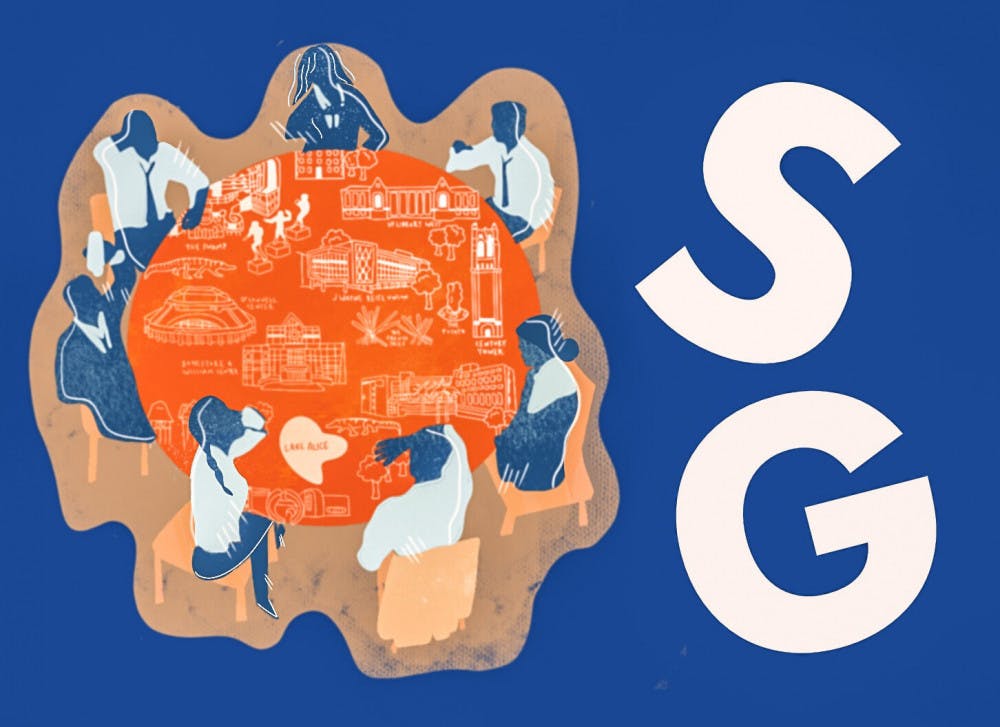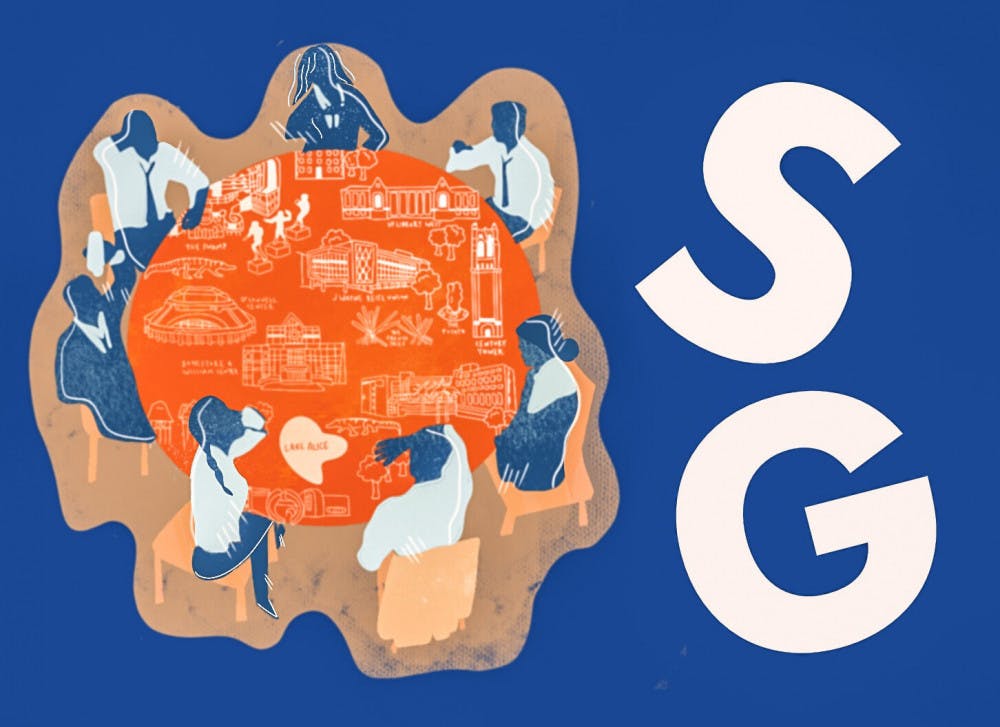
Polling places are potential COVID-19 transmission points, which is pushing some students away from the UF Student Government election in-person voting. An online alternative was denied by the UF provost Sept. 21, adding to the long fight for online voting.
The court declared online voting unsecure and unconstitutional in 2006. The online option has remained contested in SG. Former Inspire Senator Zachery Utt sent a letter Sept. 17 asking Provost Joseph Glover to step in and implement online voting. The student’s email attached a plan that he said would create a safer election.
“We believe that the threat caused by the coronavirus cannot be overstated, and the university should take all steps possible to prevent the congregation of students,” Utt wrote in his letter.
The provost replied four days later telling Utt that voting should be decided by the students.
“I hope that whatever is decided will emphasize accessibility and fairness while guarding against the COVID-19 health risk,” Glover wrote.
This Fall, 50 UF Senate seats are up for election. Students can traditionally vote at polling stations across campus on Oct. 6 and 7 and, for the first time in modern SG history, cast an early voting ballot at yet to be determined dates.
Six in-person polling locations were affirmed in an Election Commission meeting Monday evening. UF event guidelines will be used for the polls, Supervisor of Elections Hayley Price said. The locations are the Reitz Union’s Computer Lab, Southwest Recreation Center’s Social Lounge, Broward basement’s Recreation Room, Murphree Area’s Office Conference Room, Keys Area’s Office Conference Room and Cypress’s Meeting Room.
The UF Supreme Court banned online voting because it could not be secure, according to the 2006 case opinion. The opinion outlined a scenario where a student would be voting online with someone standing over their shoulder, forcing them to vote a certain way. Utt said that with his plan, that wouldn’t be an issue.
His method includes a proctored Canvas quiz with Honorlock, room scans, photo ID checks and a double authentication log in.
“The Internet of 2006 is not the Internet of 2020 and software like HonorLock was not considered when the case was first argued,” he said.
Utt plans to present his case to the UF Supreme Court as well, he said.
Progressive Party President Alfredo Ortiz presented a case to the court Sept. 11 arguing online voting was legal because SG uses absentee voting, another unsecure voting method was unanimously denied by all five justices.
He has been petitioning the Supreme Court to make online voting constitutional for three years, he said. He submitted another case to the court Sept. 17 arguing for the online option.
“If someone gets sick from voting in an election, it could have been missed if only the Supreme Court had finally accepted the reality of online voting as a constitutional alternative,” Ortiz said.
In the hearing, Chief Justice Kyle Soch said that although Ortiz’s case was compelling, it was not enough for the court to overturn the 2006 ruling that established online voting as unconstitutional. Justice Preston Jones said the new early voting option was a sufficient alternative to in-person voting, and online voting was not necessary.
For the past seven semester’s SG elections, Michael Hoffman got up early, planned his biking routes to work around the polling stations and researched the sample ballot the weekend before casting his vote.
This election, the 21-year-old economic and statistics senior said he won’t go to the polls. Hoffman said he would have used online voting as a safer alternative to in-person voting.
“I don’t want to go to some crowded room and have to wait a while in close contact with other people,” he said. “It’s not really worth it in my mind.”
For online voting to be a reality, SG’s Supervisor of Elections Hayley Price would have to implement it.
“My responsibility as the Supervisor of Elections is to follow the 700 codes as they are written. I can only enforce what the codes explicitly state,” Price wrote in an email.
The 700 codes are the rules and procedures that govern SG elections. They specifically prohibited online voting where students can cast their vote through any computer connected to the internet.
Utt said he hopes online voting would make voting less expensive, safer and more effective.
“The way we operate our elections disenfranchises people,” Utt said about the current, in-person voting. “If youhave class or not on campus that day, you're probably not going to vote.”
Colin Hamilton, a 21-year-old UF mechanical engineering senior, only voted in one Student Government election in 2018. He said he couldn’t find the time to go to the polls on the two designated voting days in other semesters.
“They were always around the time I had exams,” he said. “And one time I tried to go on election night and it was the only and only time I forgot my student ID.”
Hamilton would use an online voting system if it had safety precautions like two-factor authentication he said. He hopes to vote in this election if he likes any of the parities.
Lianna Hubbard is a reporter for The Alligator’s Investigative Team. The UF women’s study major began as a freelance reporter three years ago. She founded her community college’s award-winning newspaper before beginning at The Independent Florida Alligator. See an issue in your community or a story at UF? Send tips to her Twitter.






